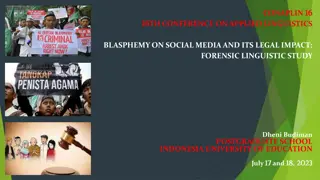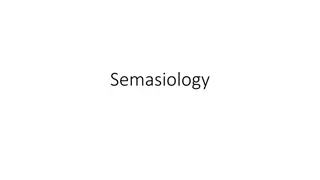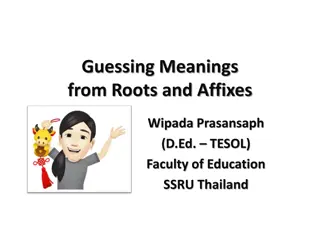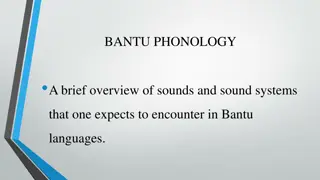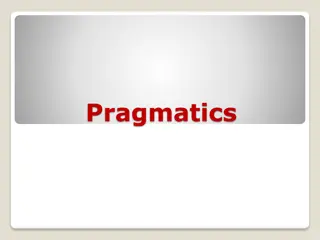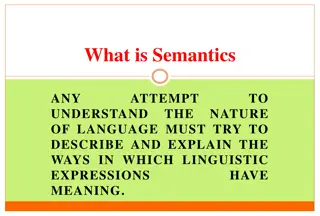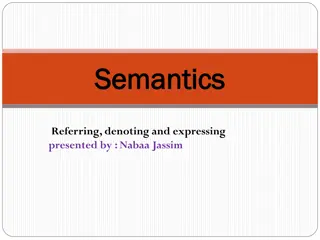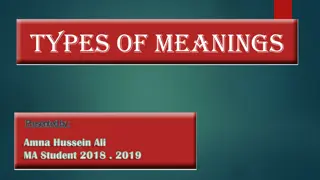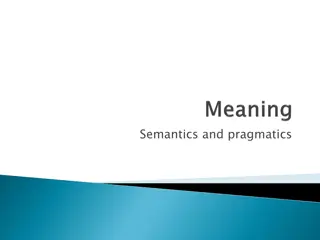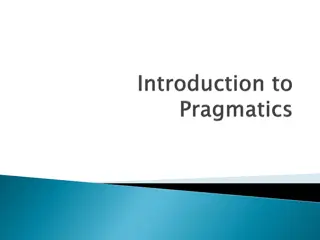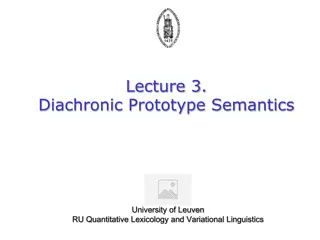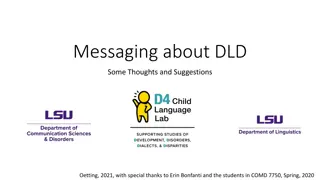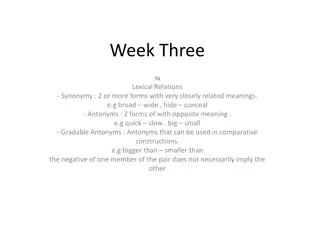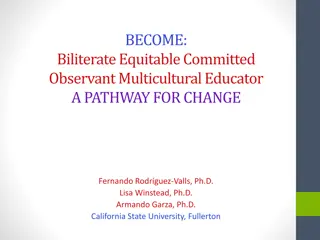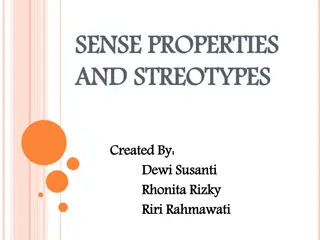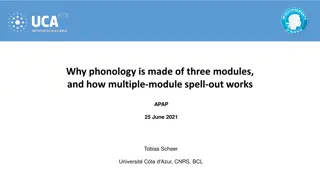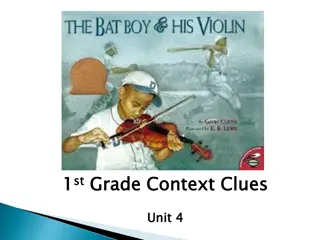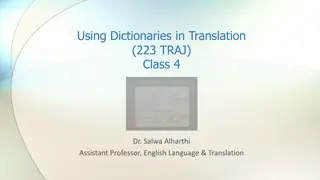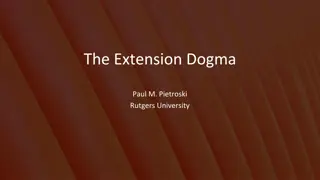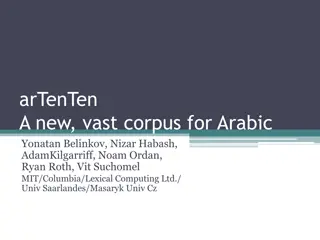Evolution of Word Meanings: A Linguistic Perspective
Explore how words evolve in meaning over time, touching upon the concepts of semantics, narrowing of meaning, degeneration, and regeneration. Discover how the same word can hold different connotations for various individuals. Delve into examples of semantic changes through linguistic shifts such as slang, showcasing the dynamic nature of language.
Download Presentation

Please find below an Image/Link to download the presentation.
The content on the website is provided AS IS for your information and personal use only. It may not be sold, licensed, or shared on other websites without obtaining consent from the author.If you encounter any issues during the download, it is possible that the publisher has removed the file from their server.
You are allowed to download the files provided on this website for personal or commercial use, subject to the condition that they are used lawfully. All files are the property of their respective owners.
The content on the website is provided AS IS for your information and personal use only. It may not be sold, licensed, or shared on other websites without obtaining consent from the author.
E N D
Presentation Transcript
Changes of Meaning It is necessary to say something about the way in which words gradually change their meaning. The branch of linguistic study that concerns itself with the meanings of words and the way meanings develop is known as semantics. Narrowing of meaning, degeneration, and regeneration are important notions. For examples:The word lovely, for example, means primarily worthy to be loved, and great means large in size, the opposite of small. But today lovely and great have no such meaning. For more examples see pages 32 and 34.
sometimes happens that the same word will acquire different restricted meanings for different people. For example: The word gas is an inclusive term for the chemist, but it calls up a more restricted idea in the kitchen and a still different one in the garage
Degeneration of meaning Degeneration of meaning may take several forms. For example: Smug was originally a good word, meaning neat or trim; its present suggestion of objectionable self- satisfaction seems to have grown up during the nineteenth century.
Slang All the types of semantic change discussed in the preceding paragraph could be illustrated from that part of the vocabulary which at any given time is considered slang. It is necessary to say at any given time not only because slang is fleeting and the life of a slang expression likely to be short, but also because what is slang today may have been in good use yesterday and may be accepted in the standard speech of tomorrow Slang has been aptly described as a peculiar kind of vagabond language forcing its way into the most respectable company of people. Webster in 1828 defines it as low, vulgar, unmeaning language. Oxford Dictionary, expressing the attitude of 1911, and defines it as : Language of a highly colloquial type, below the level of standard educated speech, and consisting either of new words, or of current words employed in some special sense. The word slang does not occur in Johnson s Dictionary. It first occurs a few years later. For more examples see page 35.

 undefined
undefined




